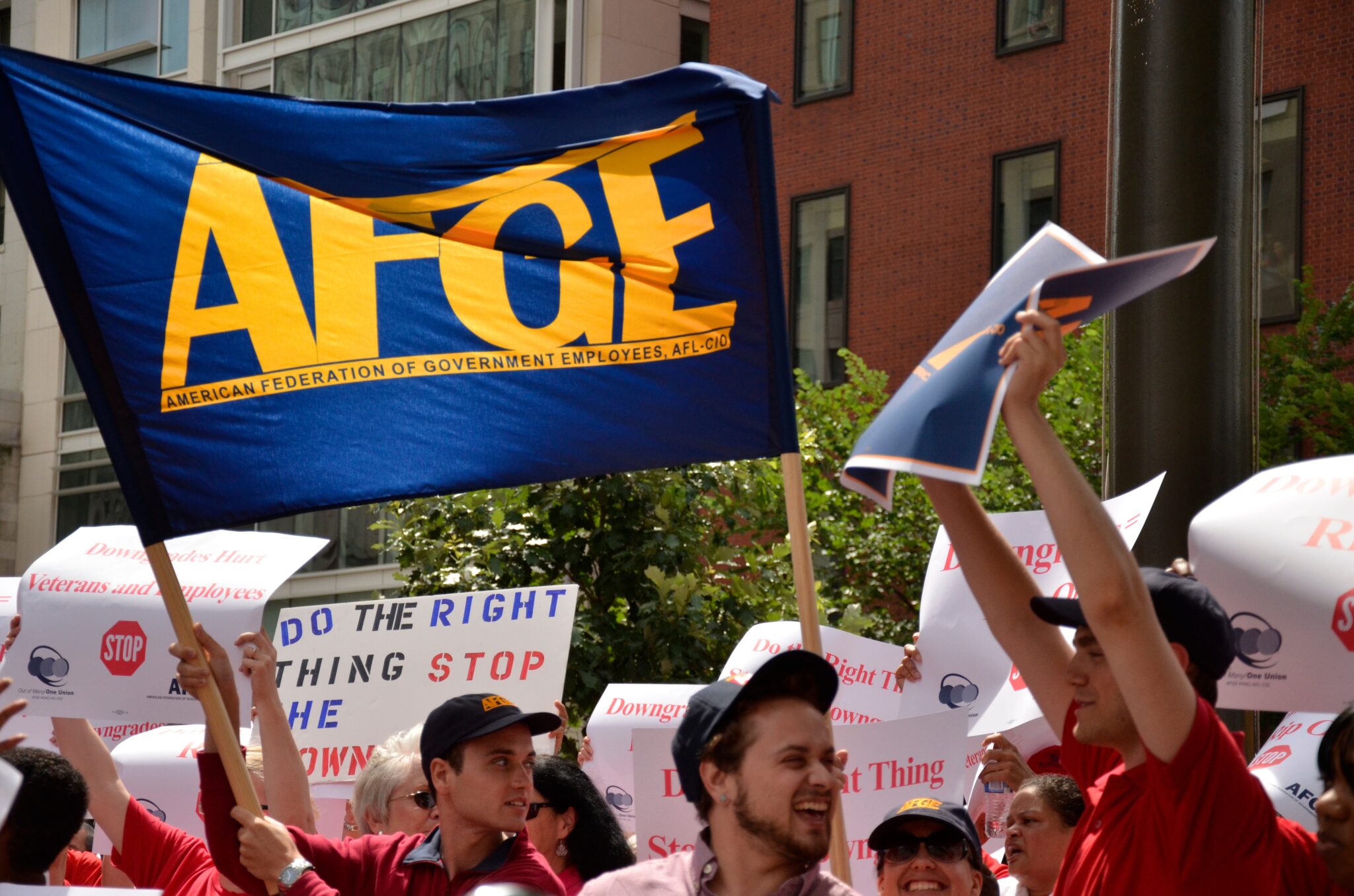
Mila Rostain is a student at Harvard Law School.
In today’s News and Commentary, AFGE argues at a hearing that the TSA’s termination of the collective bargaining agreement covering TSA employees violates the union’s First Amendment rights, agricultural workers supported by the National Right to Work Legal Defense Foundation challenge card check laws in New York and California, and a California Court of Appeal reaffirms San Francisco city workers’ right to strike.
On Tuesday, at a hearing weighing the American Federation of Government Employee’s (AFGE) request for a preliminary injunction against the TSA’s termination of the collective bargaining agreement covering TSA employees, AFGE lawyer Abigail Carter argued that “the pattern of antagonism against AFGE for its First Amendment activities demonstrates retaliatory intent, and evidence of such a pattern supports causation.” According to AFGE, the Trump administration’s reasons for eliminating TSA workers’ collective bargaining rights are pretext for retaliation against unions that have challenged the administration and amount to a violation of the union’s First Amendment rights. While TSA is exempted from Title 5 of the US Code, lawyers for the government argued that Judge Marsha Pechman of the District Court for the Western District of Washington lacked jurisdiction because the union had not first challenged the agency action under the Federal Labor Relations Authority, which governs federal agencies covered by Title 5.
Agricultural workers assisted by the National Right to Work Legal Defense Foundation are joining challenges against New York’s Farm Laborers Fair Labor Practices Act and California’s Agricultural Labor Relations Act. In California, workers at Wonderful Nurseries are claiming that the Agricultural Labor Relations Board’s process for arbitrating bargaining impasses violates workers’ due process rights. Californian employers have also challenged the Act’s card check process with both the Agricultural Labor Relations Board and in state court. In New York, two farmworkers filed a motion to intervene in a suit challenging the card check process. Their complaint also alleges that the FLFLPA’s inclusion of workers with H2-A visas is field preempted. The challenges come as workers at a New York farm seeking to unionize lost the first secret-ballot election under the FLFLPA. The workers had previously won union recognition through card check, but PERB overturned that certification after finding that an Administrative Law Judge had improperly limited the pool of eligible employees.
Last week, a California Court of Appeal reaffirmed San Francisco city workers’ right to strike. In 2023, the International Federation of Professional & Technical Engineers, Local 21 and SEIU Local 1021 challenged two provisions in San Francisco’s Charter that prohibited city workers from striking and mandated the termination of striking workers. The unions alleged that the provision conflicted with the Meyers-Milias-Brown Act. After an Administrative Law Judge ruled in favor of the unions, the City appealed. The Court of Appeal denied the City’s request for relief. President of SEIU 1021, Theresa Rutherford, stated, “once again, justice has prevailed on this issue, and now the courts as well as PERB have officially recognized that the City and County of San Francisco cannot prohibit strikes or retaliate against workers who participate in them.”






Daily News & Commentary
Start your day with our roundup of the latest labor developments. See all
November 24
Labor leaders criticize tariffs; White House cancels jobs report; and student organizers launch chaperone program for noncitizens.
November 23
Workers at the Southeastern Pennsylvania Transportation Authority vote to authorize a strike; Washington State legislators consider a bill empowering public employees to bargain over workplace AI implementation; and University of California workers engage in a two-day strike.
November 21
The “Big Three” record labels make a deal with an AI music streaming startup; 30 stores join the now week-old Starbucks Workers United strike; and the Mine Safety and Health Administration draws scrutiny over a recent worker death.
November 20
Law professors file brief in Slaughter; New York appeals court hears arguments about blog post firing; Senate committee delays consideration of NLRB nominee.
November 19
A federal judge blocks the Trump administration’s efforts to cancel the collective bargaining rights of workers at the U.S. Agency for Global Media; Representative Jared Golden secures 218 signatures for a bill that would repeal a Trump administration executive order stripping federal workers of their collective bargaining rights; and Dallas residents sue the City of Dallas in hopes of declaring hundreds of ordinances that ban bias against LGBTQ+ individuals void.
November 18
A federal judge pressed DOJ lawyers to define “illegal” DEI programs; Peco Foods prevails in ERISA challenge over 401(k) forfeitures; D.C. court restores collective bargaining rights for Voice of America workers; Rep. Jared Golden secures House vote on restoring federal workers' union rights.